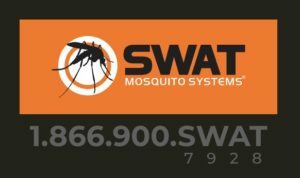Mosquitoes are always an irritating nuisance. This year, however, there is a more serious concern: the Zika virus, which experts believe is linked to microcephaly, a serious birth defect. After cases were identified in Florida, Gov. Rick Scott declared a health emergency.
Although all Florida cases so far are believed to have been contracted by people traveling outside the U.S., residents need to prepare themselves, says an online report from the University of Florida’s Institute of Food and Agricultural Sciences. The transmission from mosquito to person could happen any time. “We should remain vigilant and informed,” cautions Jorge Rey, interim director of the Florida Medical Entomology Laboratory in Vero Beach.

Zika was discovered in 1947 in Africa. Named after the Zika Forest in Uganda, the word means “overgrown” in Luganda, the major language spoken in that country. Although there are 200 species of mosquitoes in the U.S., Zika is thought to be transmitted by just one: the Aedes Aegypti. Zika is not, of course, the only illness carried by mosquitoes. Among others, the bloodsuckers also transmit dengue fever and West Nile virus, as well as heartworm in dogs and equine encephalitis. What can South Floridians do to protect their homes and yards?
Early Concerns
Chalmers Vasquez, operations manager for mosquito control in Miami-Dade County, said his department has received a spike in complaints about mosquitoes in the wake of the news about Zika. Typically, that doesn’t happen until closer to summer. “It’s very unusual at this time of year,” he said.
Lifecycle Is All Wet
The lifecycle of mosquitoes has four stages: the egg, which the female lays in water; the larva or wriggler, which lives in the water but surfaces to breathe air; the pupa or tumbler, which also lives in the water; and the adult mosquito, which emerges after the pupal case splits. To begin the cycle again, the female mosquito will require a meal of blood before she goes off to lay her eggs.
Dry It Out
The common denominator in the mosquito’s development: water. One of the most important things homeowners can do to protect themselves is to get rid of or empty any containers that might hold standing water. “That’s where they breed,” Vasquez said.
The creatures can lay eggs in old tires, children’s toys, ground depressions, rocks, clogged roof gutters, potted plant saucers, and even flowers such as bromeliads. Pet dishes, birdbaths and kiddie pools, which a homeowner may not want to empty, should be changed often. Also, create structural barriers, advises the Environmental Protection Agency’s website. Cover all gaps in walls, doors and windows. Door and window screens should be “bug tight.”
Other Protection
Staying indoors at dusk and dawn, when mosquitoes are most active, is a good idea, Vasquez said. Wearing longsleeved shirts and long pants can also help protect against mosquitoes. The insects hunt their prey by detecting chemicals in breath and sweat, so frequent bathing may be a good idea. Some also like the smells of perfumes, so avoid using them outdoors.
The most effective repellents applied to skin are those containing high concentrations of DEET, a chemical that jams the sensors of mosquitoes and confuses them. Follow label directions carefully, especially with children, advises Dr. John Pipoly, Broward County Extension Agent for Urban Horticulture. He himself uses a natural repellent, lemon eucalyptus. Yes, it does work, he maintains. “Most people don’t use enough of it.”
Pipoly advises homeowners against spraying their yards. “Ninety-nine percent of people don’t know what to use, and they use the wrong things,” he said. “There are a lot of beneficial bugs out there.”
Outdoor Misting Systems
For protection that happens automatically, an outdoor misting system may be the answer. More people are investing in these timed-release mosquito control systems, says the EPA’s website. A mister sprays insecticide through nozzles mounted in the lawn or landscaping around the perimeter of a home. “It’s almost like a sprinkler system,” said Steve Jenkins, owner of Miramar-based SWAT Mosquito Systems®️.
Nozzles are set every eight to 10 feet, Jenkins said. Usually, a system is programmed on a timer to go off at sunrise and sunset, when mosquitoes are most active. “It will mist two to four time a day for about 30 seconds at a time,” he said. “The bigger the perimeter you set up, the less likely you are to get a mosquito coming from a neighbor’s yard.”
The insecticide SWAT uses is pyrethrin-based, a substance that occurs naturally in chrysanthemums. The toxicity lasts about 30 minutes. The product is safe for mammals and birds, Jenkins said. It can be toxic to fish, however, so nozzles are kept a minimum of 10 feet away from ponds. The cost: about $3,500 to $4,500 for an average-size lot.

This article originally appeared in the Miami Herald – South Florida Home (Special Real Estate Section) on Saturday, February 27, 2016.